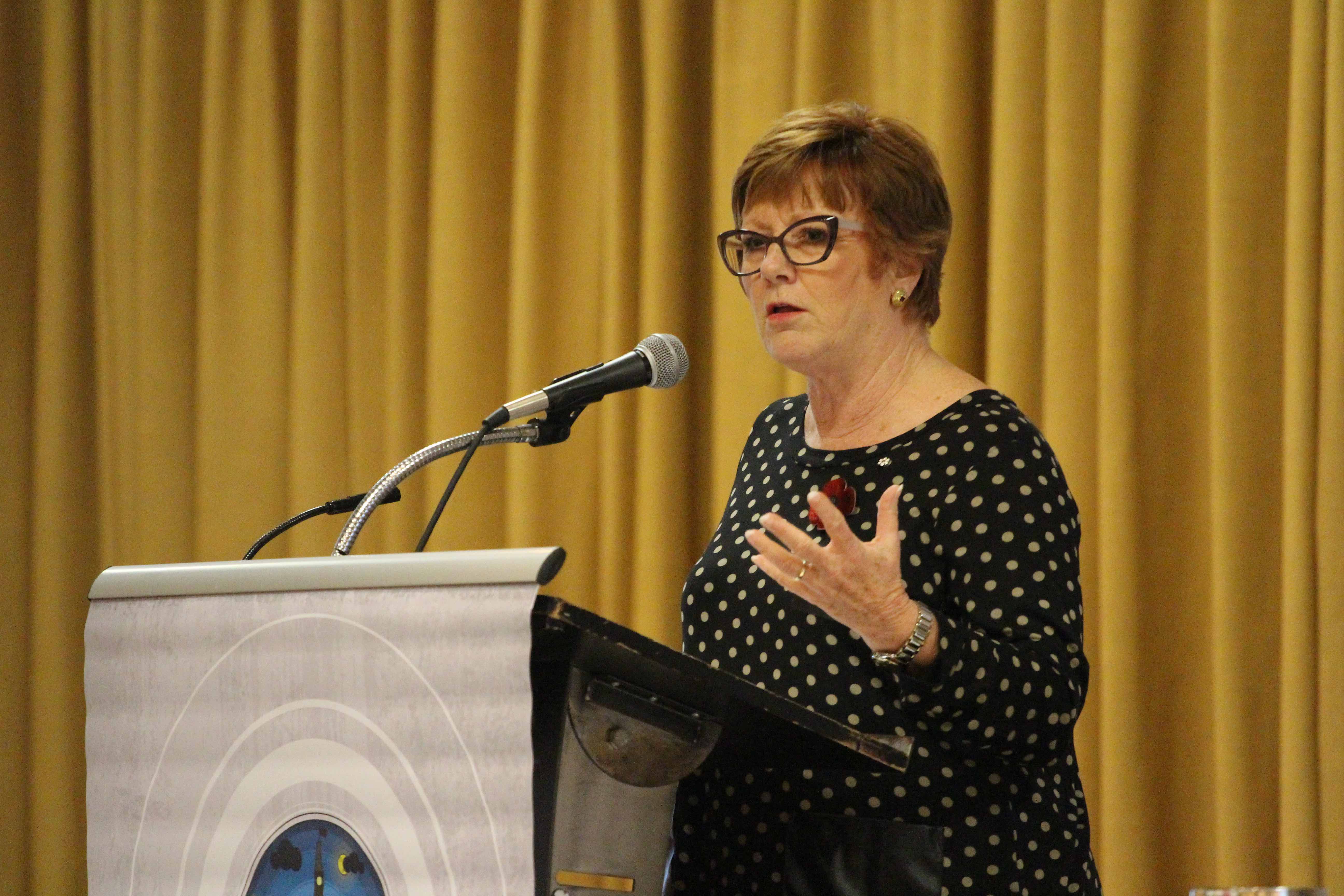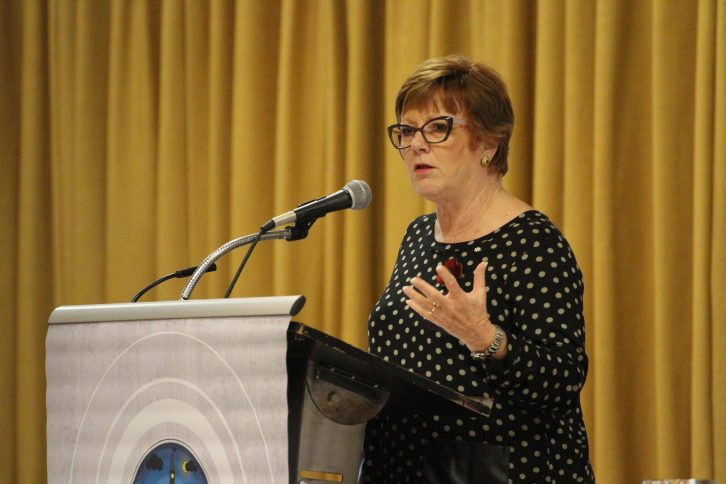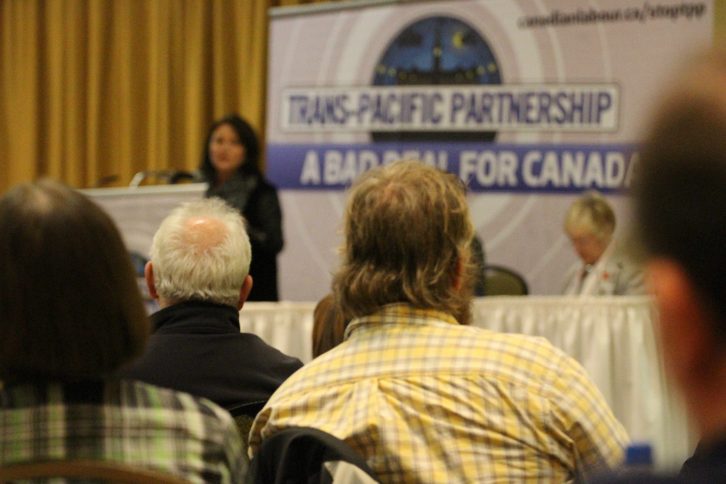Trade
‘How to stop’ TPP talk draws crowd in Dartmouth
Council of Canadians, Canadian Labour Congress host town hall

caption
Barb Byers discusses possible Canadian job losses if the TPP is ratified.
caption
Barb Byers discusses possible job losses if the TPP is ratified in Canada.The fight against the Trans-Pacific Partnership, a controversial fair trade agreement, is gaining ground in the Halifax area.
On Thursday, the Canadian Labour Congress and the Council of Canadians hosted a town hall meeting at the Harbourview Holiday Inn in Dartmouth. About 90 people were there to discuss the agreement. According to the Facebook page, the event was for people to “learn what the TPP will mean for Canada, for Halifax, and how to stop it.”
Barb Byers, one of the keynote speakers, says Canada stands to lose more than it will gain by ratifying the agreement. She’s the secretary-treasurer for the Canadian Labour Congress. Related stories
“Even people who are proposing it and promoting it are saying that the boost to Canada’s GDP will be by half a percentage point and that’s ten years after it takes effect,” Byers said in an interview before the event.
“That’s not enough to sacrifice those jobs, it’s not enough to sacrifice our next generations, it’s not enough to sacrifice the health care system that we’ve got.”
The other keynote speakers were Maude Barlow, the national chairperson for the Council of Canadians, and Linda Silas, the president of the Canadian Federation of Nurses Unions. They said the TPP threatens Canadian jobs, health and safety regulations, the dairy industry, health care and pharmaceutical costs, automotive manufacturing and the environment.
They also said the benefits of the TPP are largely skewed in favour of corporations, not Canadian citizens.
Twelve Pacific Rim countries are in the TPP. Canada signed the agreement earlier this year, but has yet to ratify it.
During an open question period, people expressed disappointment and anger towards the previous Conservative government, citing a lack of transparency around the agreement.

caption
Linda Silas addresses the room, discussing impacts the TPP may have on health care and pharmaceutical costs.The government states that participating in the TPP would “generate GDP gains of $4.3 billion” by 2040. If Canada does not participate, it would cost the country $5.3 billion due to limiting of market access.
Kurt Huebner, an expert in global political economy from UBC, agrees that there might be more to lose than the government predicts.
“TPP is not a bad agreement because it has been negotiated by the former Harper government,” he said in an email. “It is a bad agreement because it does not adequately deal with issues like labour standards, environmental standards and investor-state dispute settlement (ISDS).”
ISDS means that investor states can sue their host government, if they so choose.
Finn Langeger attended Thursday’s event. He said he wanted to learn more about the cause and become more involved.
“The motivation is revolution, something has to change,” he said. “Corporate dominance has run its course and things have to be brought back to the people.”
The town hall in Dartmouth is one of four stops on a nationwide tour, including Winnipeg, Toronto and Windsor, Ont.

